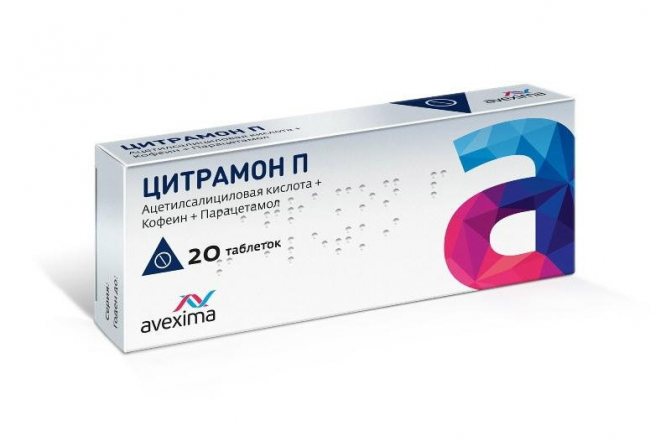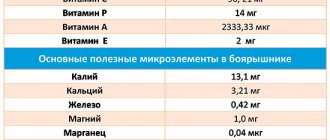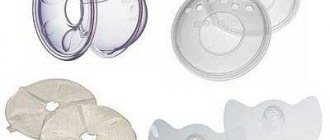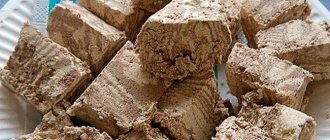Possible consequences for mother and baby
There are quite a lot of side effects from taking Citramon.
- Nausea and vomiting.
- Pain in the epigastric region.
- With long-term use of Citramon, the development of erosive gastritis and liver dysfunction is possible.
- Gastrointestinal bleeding.
- Reduced blood clotting, increased bleeding time.
- Dizziness, increased headache.
- Renal dysfunction.
- Allergic reactions: skin rash and itching, urticaria.
- Stevens-Johnson syndrome (exudative erythema malignant).
- Lyell's syndrome (epidermal toxic necrolysis).
- Anaphylactic shock.
- Reye's syndrome (in children).
- Increased blood pressure.
- Deterioration of vision.
- Noise in ears.
Aspirin, entering the baby's body through breast milk, disrupts the synthesis of platelets, thereby increasing the risk of internal bleeding. Hematomas may appear on the body.
A decrease in the production of special COX enzymes responsible for the formation of prostaglandins disrupts the natural protection of the gastric mucosa. This can lead to bleeding in the intestines.
Long-term use of aspirin by the mother can lead to the death of the baby. Aspirin can also cause diseases such as:
- hearing impairment,
- anemia caused by a lack of iron in the body,
- bronchial asthma,
- renal failure, which is chronic.
Aspirin can cause an allergic reaction in the form of bronchospasms or a runny nose, which causes nasal polyps.
Important! If a nursing mother drinks Citramon during the period when the baby has contracted a viral infection, then aspirin can trigger the occurrence of a disease such as Reye's syndrome. This is a rare but very serious disease that can be fatal.
It is characterized by brain damage and fat accumulation in the liver. Only a mild degree of the disease can be treated without subsequent complications if the diagnosis is made in a timely and correct manner.
Caffeine, affecting the baby's central nervous system, causes anxiety, excessive excitability, sleep disturbances and regurgitation.
For the sake of fairness, it must be said that a one-time dose of Citramon will not cause significant harm to the baby. All of the above disorders occur with regular long-term use of the drug.
If a nursing mother has exceeded the single dosage (a single dose means taking one tablet) or she is still worried about possible harm to the baby, then several breastfeedings can be replaced with formula or milk expressed in advance.
It takes from 2 to 15 hours to completely remove the drug from the body, depending on the amount of medication taken.
One tablet of Citramon will not cause significant harm; you can drink it if there are no safe medications in the house
The World Health Organization has added aspirin to the list of approved drugs for breastfeeding, but only in small doses and for a short time.
There are currently many medications on sale that can replace Citramon and are approved for breastfeeding.
Remedy for Breastfeeding Headaches: Safe Medicines
Pregnancy and breastfeeding are a big burden for a woman. Her health may be affected by: sleepless nights, stress, fatigue, lack of vitamins in the body. Therefore, headaches occur quite often in women during breastfeeding. How to deal with this and is it possible to take Citramon while breastfeeding?
What is the mechanism of action of Citramon? There are many medications for headaches, but very often many people prefer this one.
Citramon contains the following components:
- Acetylsalicylic acid is an anti-inflammatory drug that has many side effects and is prohibited for children under 15 years of age.
- Caffeine is a psychostimulant component that also has contraindications; it is prescribed only in emergency cases.
- Paracetamol is an antipyretic and pain reliever that children can take.
Based on the composition of Citramon, we can say that it contains some components that are undesirable for a woman during lactation.
Is it possible to drink Citramon while breastfeeding? When taken, the medicine enters the mother’s body, and then, along with milk, into the newborn’s body. The baby may experience side effects that the drug has.
The most dangerous effect is the suppression of platelet synthesis, which can cause bleeding in the child.
Aspirin may cause hemorrhagic diathesis in a newborn, a disease characterized by bruising under the skin and sometimes internal bleeding.
Disorders associated with the functioning of the gastrointestinal tract can only occur with regular use of the drug, but this depends on the characteristics of the child’s body.
Taking aspirin can cause allergic reactions in a newborn and cause the development of aspirin-induced bronchial asthma.
What is the mechanism of action of Citramon? The most negative impact on a child's body can be the occurrence of Reye's syndrome. It is characterized by damage to the nervous system and liver in a child. This is why aspirin is not allowed for children under 15 years of age.
Can Citramon be given to a nursing mother? Caffeine, which is part of the drug, is a psychostimulant, and although it is not prohibited for use in childhood, it is prescribed for diseases that are accompanied by depression of the nervous system.
In a newborn, caffeine can cause sleep disturbances, regurgitation and increased excitability. All this will affect his physical and emotional development.
Is it possible to use Citramon while breastfeeding? A one-time use of the drug by the mother will not affect the health of the baby; such symptoms are possible only with regular use.
Can Citramon be given to a nursing mother? Of all the substances included in the drug, paracetamol is considered the most harmless for children. Pediatricians prescribe it to reduce fever in various diseases.
The effect of paracetamol is associated with inhibition of the production of prostaglandins in the body, which are formed in areas of inflammation and cause an increase in temperature by stimulating the thermoregulation center located in the brain.
The drug is considered a safe antipyretic; its breakdown in the child’s body occurs without the formation of toxic metabolites and does not harm the liver. Therefore, Paracetamol is often used to reduce fever, including in children under one year of age.
Does Citramon increase or decrease blood pressure? Despite the serious contraindications that arise when taking the drug, many women sometimes take it for headaches and recommend it to others. After all, Citramon, thanks to the caffeine it contains, can increase blood pressure, especially when it is low.
When a woman experiences a headache and she only has this drug, she can use Citramon. After all, you cannot endure pain, because it is stress for the body. And it negatively affects the breastfeeding process.
If a woman decides to take Citramon, then she needs to follow some rules:
- Be sure to weigh the positive and negative aspects that may arise when taking the drug. Is it worth risking your child's health?
- You can reduce the dose of the medicine. Instead of taking a whole tablet, take half.
- It is better to take Citramon after feeding the baby in order to reduce the effect on his body.
- Between feedings, a woman needs to drink a lot of fluids to quickly remove the medicine from the body.
- You should definitely pay attention to the behavior of the newborn; if any deviations occur, then in this case it is better to consult a doctor.
Is it possible to use Citramon while breastfeeding? By taking the drug, a woman who is breastfeeding puts his life and health at risk. Therefore, she needs to choose medications that effectively control the pain and will not harm the baby.
Some women believe that Citramon is completely safe and does not affect the child in any way. To avoid negative consequences that may occur when taking the drug, it is better to use other means.
The safest medications for women during this period are considered to be Ibuprofen and Paracetamol. Nurofen and Panadol are also allowed for use. They are used as painkillers and are allowed for infants from 3 months of age.
For spasmodic pain, a woman can take No-Shpu or Drotaverine. It is better to take all medications in smaller dosages to avoid the accumulation of harmful substances in the body of the mother and child.
Before taking the medicine, a woman can try to cope with pain with alternative means. The following methods can be used:
- Walking in the fresh air helps relieve pain, as a common cause of this condition is a lack of oxygen.
- You can rub your temples with “Star” balm, which will relieve discomfort.
- A woman needs to try to rest more and sleep enough time.
- There is no need to rush to take the medicine; it is better to drink sweet tea and ventilate the room.
Is it possible to drink Citramon for headaches while breastfeeding? The decision must be made by the woman herself, weighing all the pros and cons that may arise when taking this drug.
In the article we discuss Citramon during breastfeeding. We tell you whether a nursing mother can take the pills, the possible consequences for the child, as well as instructions for use. You will learn reviews from women about taking Citramon P, Komarovsky’s opinion about this drug, what contraindications exist and acceptable analogues when breastfeeding.
Citramon is a drug used to eliminate fever, pain and inflammatory processes. Helps stabilize the tone of blood vessels, thin the blood and improve blood circulation in small affected vessels. Effective for use for dental, headache, muscle, menstrual pain, as well as for fever, colds, and infections.
Like all medications, Citramon passes into breast milk, which can cause harm to the baby. But is this really so? Let's figure this out.
Composition of Citramon
The medication contains:
- acetylsalicylic acid - helps cope with inflammatory processes, has a large number of side effects, is prohibited for use by people under 15 years of age;
- caffeine is a psychostimulant substance, has a number of contraindications, and is prescribed only in emergency cases;
- paracetamol is a remedy against pain and fever, approved for use in children.
Judging by the composition, we can conclude that the drug contains some components that are undesirable during breastfeeding.
If you study the instructions for use of the drug, pregnancy and breastfeeding can be noted among the contraindications. This is due to the teratogenicity of acetylsalicylic acid and a large number of side effects with long-term use of the drug.
When a newborn receives aspirin along with breast milk, the risk of bleeding increases, including internal bleeding due to a malfunction of platelet synthesis. Typically, bleeding occurs in the intestines, which can be detected using a stool occult blood test.
Long-term use of aspirin, as well as a dosage of more than 5-8 g per day, has a negative effect on the condition of the stomach (ulceration of the mucous membrane occurs). This also entails problems in the functioning of the liver and kidneys.
5-6 days after acetylsalicylic acid enters the child’s body, the baby exhibits signs of irritation of the digestive organs, and tension in the large fontanel occurs as a result of increased intracranial pressure.
The child’s health quickly deteriorates, coma, convulsions and respiratory arrest rapidly develop. If coma occurs, death occurs in 80% of cases. Seizures cause brain damage, resulting in seizure disorders, muscle twitching and mental retardation.
A restless child after a nursing mother took Citramon
Despite the fact that paracetamol is practically safe for mother and baby, caffeine and acetylsalicylic acid lead to a number of side effects in the baby. They are expressed as follows:
- hemorrhagic diathesis;
- bronchial asthma;
- nausea;
- excessive excitability;
- allergic rashes;
- inhibition of nerve cells;
- restless sleep;
- liver dysfunction.
Such symptoms indicate that it is better to refrain from taking Citramon during guards. For nursing mothers, it is more effective to use other medications to eliminate headaches.
Analogs
If you cannot tolerate a severe headache, then instead of Citramon you can take its analogues, for example, Nurofen or Ibuprofen. These are relatively safe drugs that have minimal effects on the child’s body.
Can nursing mothers drink citramon?
Many women have a plate of citramon tablets in their cosmetic bag in case of headaches. Many, unfortunately, do not even think about its composition and side effects. For most, the choice in favor of this drug is determined by three factors:
- it can be freely purchased at any pharmacy;
- Citramon is affordable;
- it quickly eliminates headaches.
To understand whether nursing mothers can take citramon, you need to understand what is included in its composition and how its components can affect the infant. The main component of citramon is a large dose of acetylsalicylic acid, that is, aspirin.
Aspirin is known to have anti-inflammatory and analgesic effects, affects the blood coagulation system, reducing this ability, and can have a detrimental effect on the mucous membrane of the stomach and intestines.
Therefore, taking citramon during lactation can provoke the development of gastritis and peptic ulcers.
The second drug that is part of citramon is paracetamol, which also has an anti-inflammatory, analgesic and antipyretic effect. The third component of citramon is caffeine, which has a stimulating effect on the nervous system. Frequent use of citramone during lactation can cause nervousness and sleep disturbances in a young mother and, accordingly, in her child.
Medicine: composition and action
Pharmacies sell Citramon without a prescription. The medicine has a triple effect on the human body:
- relieves pain;
- reduces fever;
- relieves inflammation.
The active substances included in the Citramon tablets have a complex effect. Acetylsalicylic acid reduces severe inflammation and fever.
According to the classification, it is a non-steroidal anti-inflammatory drug.
Caffeine, the second component of Citramon, relieves headaches . Under its action, the blood vessels of the brain narrow, which helps with severe migraine attacks. The third active ingredient of Citramon is paracetamol. This substance reduces pain and fever.
Causes of headaches in breastfeeding women
Before taking pills for headaches, a young mother should find out the cause of her poor health. Sometimes it is enough to eliminate the factors that provoke the malaise in order to forget about it forever, without resorting to the help of medications.
A doctor will help determine the cause of a headache, so if a woman frequently complains of discomfort, she should visit a specialist.
There are several most common factors that contribute to the occurrence of this unpleasant symptom in young women:
- Chronic lack of sleep. After giving birth, a woman’s life changes beyond recognition. A newborn baby requires increased attention 24 hours a day. Waking up several times a night in order to feed her child or change his diaper, by the morning the young mother feels sleep-deprived and completely exhausted. Constant lack of sleep leads to overwork of the body, which is manifested by headaches, general weakness, dizziness and other equally unpleasant symptoms. In order not to push herself to such an extreme, a young woman should rest during the day. An afternoon nap will compensate for lack of sleep at night and prevent headaches.
- Migraine. It is the cause of poor health in every fourth young mother. The disease is the result of spasms of cerebral vessels. It is characterized by debilitating, throbbing pain in the temples. A migraine attack can last up to several days, depriving a woman of the peace and joy of motherhood. You can get rid of headaches associated with this disease with the help of analgesic drugs.
- High blood pressure. Hypertension is not limited to older people. In the list of reasons that provoke the occurrence of headaches in youth, it is far from the last place. High blood pressure is characterized by pain in the occipital region and neck, accompanied by rapid pulse and difficulty breathing. If a nursing mother is bothered by the symptoms described, she should not take headache pills. She needs medications to normalize blood pressure, and only the attending physician should prescribe them.
- Low blood pressure. During breastfeeding, women are not recommended to drink strong tea and coffee. Because of this, they often develop arterial hypotension, which manifests itself in the form of drowsiness, weakness and a pressing headache in the bridge of the nose. Analgesics will not relieve a woman of her headache. Walking in the fresh air will help ease your general condition (this is useful not only for the mother, but also for her baby).
- Osteochondrosis. One of the most common manifestations of this disease is headache. Painkillers help mommy feel better in the short term, but to completely eliminate the symptom, she needs to treat the underlying disease.
- Irregular meals. While caring for a small child, a woman often forgets to eat on time. Hunger often provokes pain in the head, which goes away on its own soon after the mother manages to eat something.
- Ailments of viral and cold origin. Pain in the head is accompanied by symptoms such as fever, runny nose, cough, body aches, etc. Relief of the condition occurs with correctly prescribed comprehensive treatment, carried out under the supervision of a doctor.
Severe symptoms require a doctor's examination.
How to cope with headaches without medications? There are effective methods to combat headaches without the use of medications. If a migraine is triggered by muscle spasms, you need to massage your neck.
The “Star” balm will help you cope with headaches.
A small amount of the product should be rubbed into the skin on the temples with light circular movements. After some time, the weak headache will pass, the strong one will become less intense. Will improve the mother's condition:
- cold and hot shower;
- walk in the fresh air;
- warm baths for hands (feet).

Cold in a nursing mother
The body of a nursing mother is susceptible to colds, since the mother gives the child many nutrients and microelements. With a weakened immune system, the incidence of acute respiratory viral infections increases and the cold becomes more severe.
What should I do to get cured as soon as possible and not infect my child? It is important to start treatment at the first symptoms.
This increases the likelihood that the disease will not cause complications, and the viral infection will not progress to the stage of bacterial inflammation.
On the first day of the disease, a loading dose of antiviral drugs is needed. When breastfeeding, choose antiviral drugs that can also be given to infants. Once in the mother’s blood, some of the active substances will pass into the milk and, together with your antibodies, will serve to prevent infection of the baby. You can drink Ergoferon, Viferon, Genferon.
If you have a cough, you should not take drugs based on Bromhexidine. As a cough medicine when breastfeeding, it is better to choose natural-based syrups, such as Licorice syrup.
At least in the first days of illness, do not kiss the baby, do not sneeze or cough on him. If you wear a mask, change it as often as possible. Ventilate the room periodically to reduce the concentration of viruses in the air. Take care of prevention for your child: consult your pediatrician about using suppositories or nasal drops (Viferon, Genferon).
Features of taking Citramon during lactation
First of all, let's agree to take a variety of citramone with the most gentle composition - a minimum of acids and caffeine and a maximum of paracetomol. Citramon Extra primarily satisfies these conditions - it does not contain acetylsalicylic or citric acid at all, so it will not have a negative effect on the baby’s digestion. But it contains a loading dose of paracetomol and a small dose of caffeine. Which is quite enough for mommy to get rid of pain symptoms. And the stimulating effect of caffeine on the baby is fully compensated by the soothing and relaxing effect of paracetomol.
Therefore, our number one advice is to choose Citramon Extra when breastfeeding.
The second secret is the correct time to take Citramon while breastfeeding.
It turns out that the well-being of your baby largely depends on when you take Citramon while breastfeeding. So, try to take citramon immediately after feeding. And try to express the milk produced within three hours after taking it; at the next feeding, give the baby a pacifier with breast milk from the previous feeding or complementary foods, formula or Agusha. In three hours, Citramon during breastfeeding will be completely eliminated from the body - and its analgesic effect will last much longer, at least for six to eight hours.
Finally, the third secret to the harmless use of Citramon during breastfeeding is following a simple rule: no more than one tablet per day, no more than twice a week! If you resort to using Citramon Extra more often, you risk jeopardizing your baby’s sleep and nervous system. But if you fulfill all three conditions listed in our article, then taking Citramon during lactation will not cause you any problems and will not adversely affect the health and development of your child. So be healthy and happy, dear mothers! And don’t deny yourself support if you really need it.
Good day and good mood, dear readers.
Despite urgent requests from doctors not to self-medicate, we often take certain medications out of habit, confident that they will not harm. Do you have a headache or a sudden drop in blood pressure? You need to drink Citramon. We're so used to it. We always do this.
But with the birth of a child, mothers begin to consider any medicine, focusing, first of all, on its safety for the baby. Is it possible to drink Citramon while breastfeeding? Is there a safe alternative to this drug during lactation?
Treatment options
The mother's nutrition is the child's nutrition. Everything that enters the nursing mother’s body during lactation is passed on to the baby through the milk. This also applies to medications. If possible, it is better to do without them.
Time-tested folk methods help quite well. For headaches, you can do the following procedures:
- Relax in peace and quiet, sleep;
- Ventilate the room;
- Eliminate sharp and loud sounds;
- Dim the lighting;
- Drink a cup of hot and sweet black tea;
- Massage the head, neck or occipital area (depending on what helps more);
- Place a cold compress on your head;
- Take a warm shower or make a warm foot bath;
- Cold foot baths may also help.
There are other ways to get rid of headaches without pills. Only when nothing helps, you should pay attention to medications.
What is Citramon?
Lack of sleep, nervous fatigue, irregular nutrition - all this leads to frequent migraine attacks in nursing women.
Can a nursing mother use Citramon for headaches? Doctors give a clear answer - no. Why? Let's study the composition of the drug - this drug is not as harmless as many people think.
The main components of the medicine can have a negative effect on the baby's body.
Paracetamol
The drug has an analgesic and antipyretic effect and belongs to the group of analgesics of non-narcotic origin. This substance is safe for nursing mothers and children over three months of age.
Caffeine
A tonic, vasodilator, improves blood circulation, eliminates migraines, helps with minor hypertension. Citramon contains 30 mg of this alkaloid - a dose that is safe for a child, but allergic reactions may occur and the baby will have a disruption in their daily routine.










